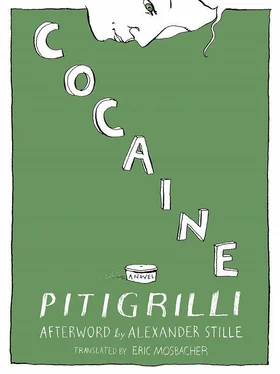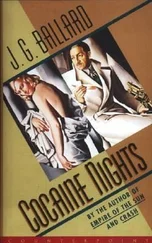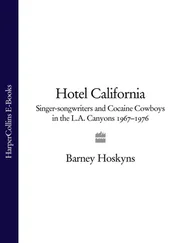So all Tito had to do was to turn up at the manager’s office once a month, receive an envelope full of banknotes, and sign a receipt.
He spent his time going for solitary morning walks in the outlying districts of Paris. Sometimes he stayed for two or three days at Kalantan’s house, where a room was now kept ready for the gentleman. Then he would give up Kalantan for a week to devote himself exclusively to Maud. At other times he let days go by without seeing either. And sometimes he went back to the semi-clandestine cafés in Montmartre and Montparnasse, the doubtful haunts of professors of billiards and poker, impresarios of amorous adventures at popular prices, police informers, pimps, and hungry little tarts living on anchovy sandwiches and croissants dipped in coffee.
The one-legged peddler sold him six glass tubes full of excellent Mannheim cocaine, and he went round Paris with the tubes in his pocket like a child who sleeps with all his toys under his pillow. He sought out the most modest streets in La Villette and Belleville where the walls were adorned with sinister theatrical posters, advertising such productions as The Bastard’s Daughter and The Hanged Man’s Revenge. He walked down the avenues of the Père Lachaise cemetery, which were kept as neat and tidy as a collection of samples; and he went to see the abattoirs, and saw docile sheep and restive calves going in.
At least no one talks to them about dying for their country, he said to himself.
A wretched dog, exhausted by fatigue and thirst, was trotting along behind a light cart which, to judge from the dust, must have come a long way. The cart was nearly empty, and the peasant who was driving it could have let the dog into it instead of letting it suffer like that.
But peasants, Tito said to himself, are an inferior race; they’re worse than blacks. Their actions are guided by the grossest selfishness, the most useless cruelty and the most stubborn ignorance. I should be delighted if hail destroyed their wheat, fungus ruined their vines and disease affected their cattle every year. They deserve no better.
He was strangely moved by the sight of a long crocodile of little girls dressed in white chattering on their way to the Parc des Buttes Chaumont. He started following them. He thought he could already see something definitive in each of them. He saw little faces of future comic opera soubrettes; the merry, dangerous eyes of future wreckers of nervous systems; the plump cheeks of future mothers and housewives who would find ways and means of pleasing serious-minded gentlemen between one delivery and the next. They were all dressed in the same way, all in white, they were almost identical in size, but in each of them there already slumbered in embryo the courtesan, the artist, the ordinary woman, the exceptional woman. Inside them were tiny ovules from which great men or great criminals might perhaps be born, or perhaps also cancer cells or tuberculosis bacilli. Among them might be another Maud, another Kalantan, who would cause despair to some small Tito Arnaudi who somewhere or other was now sticking his fingers up his nose.
These casual, aimless wanderings gave him the apathetic bliss of the vagabond. The vagabond’s life has its charms, such as not being the slave of the clock or of appointments, and of not going in prearranged directions. He could spend his time listening to a case in the appeal court, or attending a lecture at the university, or sitting on a bench in a public park or on the river bank; he could attend a public auction, or stop and watch a cart that was too heavy and could not get out of a rut, or go and see the bodies in the Morgue, or watch the departure of melancholy evening trains, or talk to builders, or listen to market salesmen calling their wares, or leaf through the books of the bouquinistes on the peaceful quais, or snooze on green velvet seats in museums, or throw bread to the patient and stupid bears and those enormous, childlike elephants in the Jardin des Plantes.
Sometimes an image of Maud would form in his mind’s eye on the smooth surface of a street or on the white screen of a pavement, and he would go into a café or a sweet shop to escape from it.
When I see an old lady eating pastries, they seem to me to be wasted, he said to himself.
Everything irritated him from time to time. But from one point of view there was a kind of contentment in him that had been developing for some time without his noticing it. In the early stages, taking cocaine had resulted in a sensual restlessness, an almost insatiable erotic excitement (which two mistresses had not been sufficient to satisfy), but now it had begun to lower the flame of his passions. Days passed without his wanting to see Maud’s slender calves or note the musky, India ink-like perfume of Kalantan’s hair. Sometimes his thoughts reverted to the soft carpets of the takhta , where the lovely Armenian curled up in a voluptuous act of self-adoration, and sometimes he returned in memory to Maud, with her thirst for vice and novelty, but both seemed to him to be remote from his present life, for he felt himself to be a survivor.
His sensuality was now a tiny flame on the point of extinction. But every now and then a sudden burst of jealousy had the enlivening inflammable effect of oxygen.
He would imagine Maud in the arms of another in some house or other in heaven knows which of the twenty Paris arrondissements, and jealousy would make his passion flare up again.
Then he would go back to look for her, and when he found her (if he did find her) she was always ready to give herself with the whole of her vibrant body and her divinely wet lips.
“Cocaine,” he would say to her in his passion. “Cocaine, you’re not Maud, you’re Cocaine, my necessary poison. I run away from you, swear never to see you again, but then inevitably I come back, because you’re as necessary to me as a poison that is my salvation and my death. I run away from you because I feel the imprint of other males on your skin. I feel them, they are as visible to me as finger marks on gardenias. I run away from you because you’re not all mine, because I can’t bear to share you with others. Sometimes you revolt me, but I come back to you because you’re the only woman I want, the only one I can really love.”
And she, sitting on the big, unmade bed, would listen with a calm and almost preoccupied smile to the fervent words with which Tito tried to burn her hands.
And as her hands were engaged, for Tito was pressing them to his mouth, she absent-mindedly amused herself by picking up her tortoiseshell hairpins from the floor with her toes.
For her feet were as prehensile as those of monkeys, Annamites and twenty per cent of criminals.
Jealousy is the emotion that causes a man to feel that, having been admitted to a woman’s bed, only he has a right to return to it.
No man is willing to admit that this is a gross absurdity.
Every woman, however, sees and knows this intuitively, and the idea seems so grotesque to her that she sees the uselessness of arguing about it. So an intelligent woman lets the man wallow in his jealousy, because she knows instinctively that it’s a malady for which there’s no cure.
Nevertheless Cocaine said to Tito one day: “I’m not rich. I’m not much good as a dancer, and I can’t start a business or set up an industry. So I have to accept the money they offer me and the conditions they impose on me.”
Tito, faced with this frank confession, broke down and cried like a wet, folded umbrella.
To console him, in other circumstances she would have told him to undress and get into bed; but, as they were in bed already, she said: “Get dressed and we’ll go out.”
Half an hour later they were at the Invalides station, on the Versailles line.
Читать дальше



